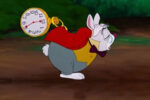Good food, a good person, a good book, good French speaking. In Dutch you only need to know 1 word, but in French you have bien or bon. When do you use which word now?
Receipt
- If the word ‘good’ belongs to a noun (note, the word bon / bonne / bons / bonnes changes with the noun):
- J’ai lu un bon livre. (I’ve read a good book.)
- J’ai mangé de bons fruits. (I have eaten good fruit.)
- J’ai passé une bonne soiree. (I had a nice evening.)
- With the verb être:
- If you want to say that something is tasty:
Ce vin est très bon. (This wine is very good.) - If you want to ask or say something is okay or fine:
C’est bon? (Are you ready? Is it okay ?.)
And also: C’est bon maintenant! (It’s enough like this!) - If you want to say something is correct:
Ton devoir est bon. (Your homework is good.)
- If you want to say that something is tasty:
Bien
- If the word ‘good’ belongs to a verb (note, the word bien does not change!):
- Ma voiture roule bien. (My car drives well.)
- Je danse bien. (I dance well.)
- Elle parle bien français. (She speaks good French.)
- With the verb être, if you want to say that something is nice, interesting or cool, or with a compliment (bravo!):
- Ce livre est bien. (This book is interesting.)
- Ton apartment est bien. (Your flat is cool.)
- C’est bien que tu fasses ça. (It’s a good thing you do.)
- C’est bien! Tu as tout compris. (Good! You got it.)






